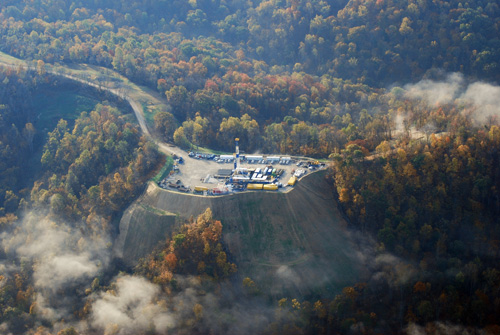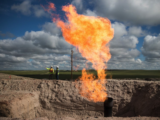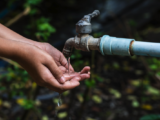By Glynn Wilson –
WASHINGTON, D.C. — The Obama administration’s Environmental Protection Agency issued a mixed report Thursday on the impacts of hydraulic fracturing or “fracking” for methane gas on drinking water.
The agency’s draft assessment, put together at the behest of Congress, shows that while hydraulic fracturing activities in the U.S. are carried out in a way that have not led to widespread, systemic impacts on water resources, there are potential vulnerabilities in the water lifecycle that “could impact drinking water.”
The assessment follows the water used for fracking from water acquisition, chemical mixing at the well pad site, well injection of fracking fluids and the collection of hydraulic fracturing wastewater — including flowback and produced water – along with wastewater treatment and disposal.
“EPA’s draft assessment will give state regulators, tribes and local communities and industry around the country a critical resource to identify how best to protect public health and their drinking water resources,” Dr. Thomas A. Burke, EPA’s Science Advisor and Deputy Assistant Administrator of EPA’s Office of Research and Development, said in the announcement about the study. “It is the most complete compilation of scientific data to date, including over 950 sources of information, published papers, numerous technical reports, information from stakeholders and peer-reviewed EPA scientific reports.”
EPA’s review of data sources available to the agency found specific instances where well integrity and waste water management related to hydraulic fracturing activities impacted drinking water resources, but the agency concluded they were small compared to the large number of hydraulically fractured wells across the country.
The report provides valuable information about potential vulnerabilities to drinking water resources, EPA says, some of which are not unique to hydraulic fracturing.
Vulnerabilities include water withdrawals in areas with low water availability, hydraulic fracturing conducted directly into formations containing drinking water resources, inadequately cased or cemented wells resulting in below ground migration of gases and liquids, inadequately treated wastewater discharged into drinking water resources and spills of hydraulic fluids and hydraulic fracturing wastewater, including flowback and produced water.
Along with its report, the agency also released nine peer-reviewed scientific reports as part of EPA’s overall hydraulic fracturing drinking water study, which contributed to the findings outlined in the draft assessment.
Also, more than 20 peer-reviewed articles were published as part of this study.
The federal agency concluded that states play a primary role in regulating most natural gas and oil development, and said that EPA’s authority is limited by statutory or regulatory exemptions under the Clean Water Act, Safe Drinking Water Act, the Comprehensive Environmental Response, Compensation and Liability Act and the Resource Conservation and Recovery Act.
“Where EPA’s exemptions exist, states may have authority to regulate unconventional oil and gas extraction activities under their own state laws,” the report concludes.
EPA’s draft assessment benefited from extensive stakeholder engagement conducted across the country with states, tribes, industry, non-governmental organizations, the scientific community and the public to ensure that the report reflects current practices in hydraulic fracturing and utilizes all data and information available to the agency.
The study will be finalized after review by the Science Advisory Board and public review and comment. The Federal Register Notice with information on the SAB review and how to comment on the draft assessment will be published on Friday June 5, 2015.
To submit comments on the report, click on this link.














